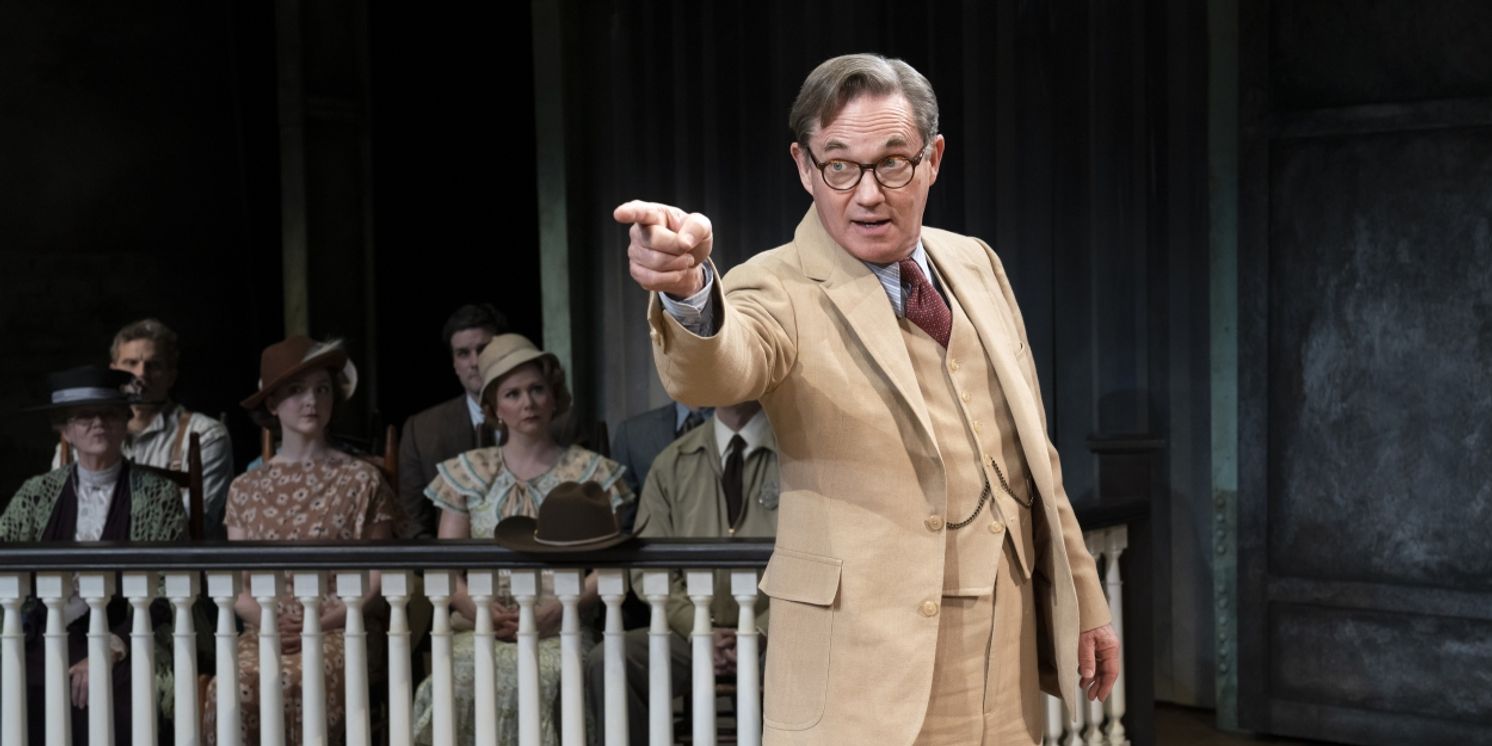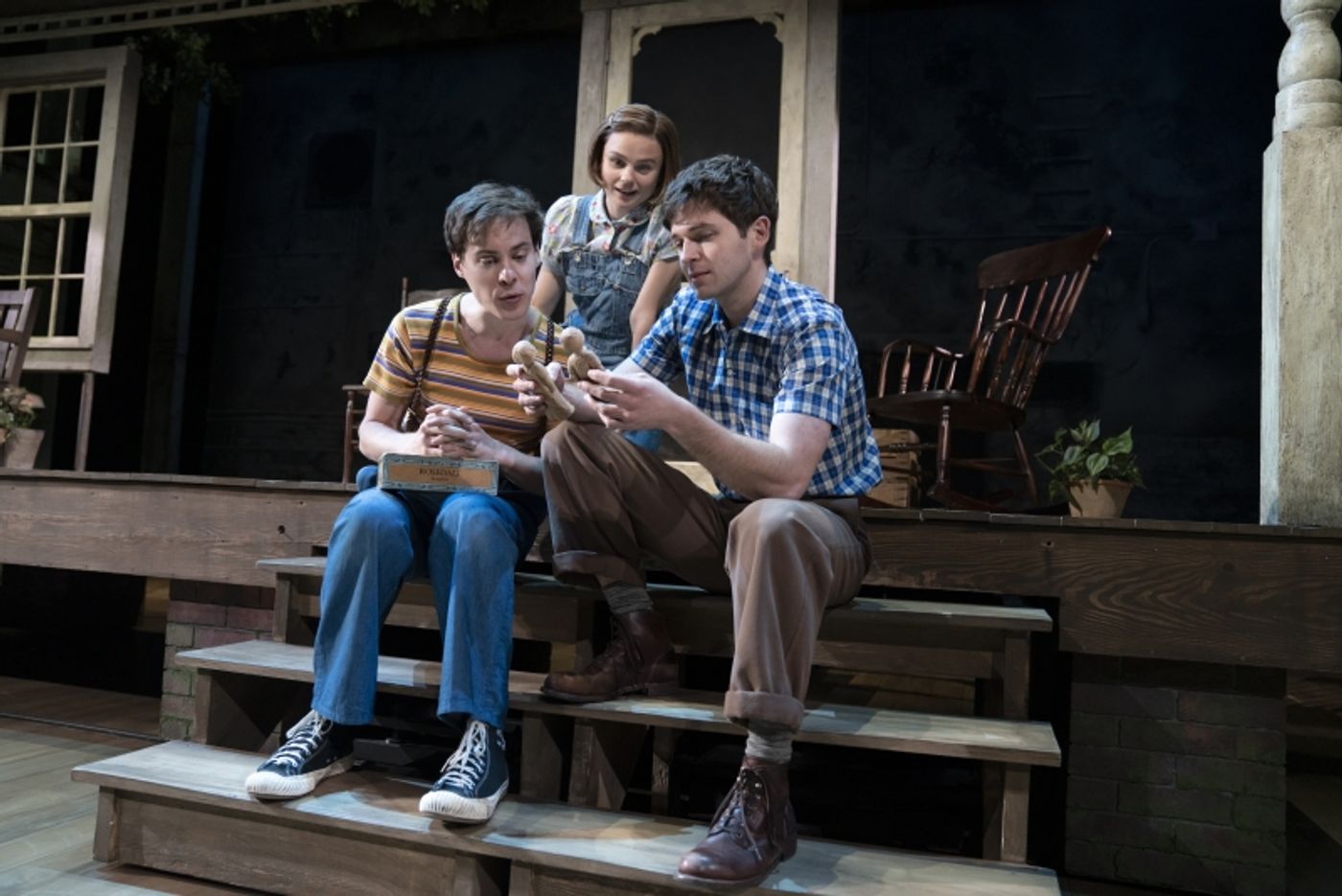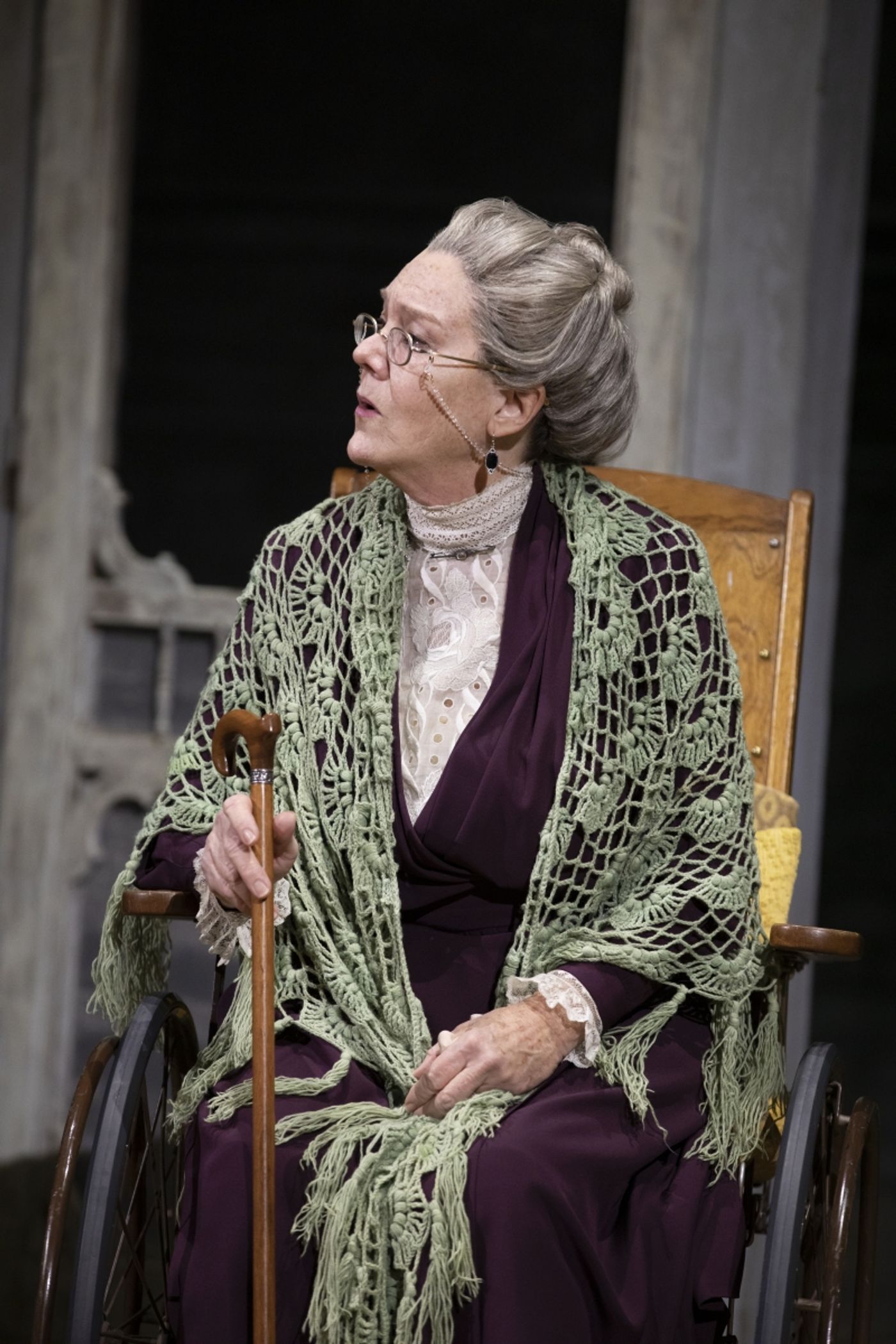Review: TO KILL A MOCKINGBIRD National Tour, DPAC
A strong adaptation of a classic American novel

Aaron Sorkin's adaptation of Harper Lee's classic 1960 novel To Kill a Mockingbird opened on Broadway in 2018. (Yes, that Aaron Sorkin). Directed by Bartlett Sher, the play transports the audience to Alabama in 1934, where Atticus Finch is representing a Black man falsely accused of sexual assault. The national tour of the play is at DPAC this week, bringing the story to life with strong performances and beautiful design.
Sorkin chose to structure the play through its young protagonists, Scout, Jem, and Dill, telling the story to the audience. They go between the trial and the events that led up to it, which works well for this format. Melanie Moore and Justin Mark are an effective pair as the Finch siblings, bringing a youthful exuberance and naivete to their roles. Steven Lee Johnson is excellent as Dill, nailing all of the comedic moments and bringing levity to an otherwise serious story. Ann Roth's costumes firmly situate the story in its 1930s setting, while Miriam Buether's impressive sets bring the many settings within Alabama to life.
 When To Kill a Mockingbird first premiered, Sorkin was criticized for the number of liberties that he took with the book. The main one is focusing more on Atticus (Richard Thomas) than Scout as the main character and providing him with a stronger arc. Thomas is an excellent Atticus, bringing dignity and strength to the small town lawyer, but the most intriguing part is watching his "There's good in everyone" attitude give way to the realization of how racist and terrible some of his neighbors are. It's a welcome change, considering how naive and even irresponsible those initial beliefs seem in 2022.
When To Kill a Mockingbird first premiered, Sorkin was criticized for the number of liberties that he took with the book. The main one is focusing more on Atticus (Richard Thomas) than Scout as the main character and providing him with a stronger arc. Thomas is an excellent Atticus, bringing dignity and strength to the small town lawyer, but the most intriguing part is watching his "There's good in everyone" attitude give way to the realization of how racist and terrible some of his neighbors are. It's a welcome change, considering how naive and even irresponsible those initial beliefs seem in 2022.
Thomas has excellent chemistry with Jacqueline Williams, who portrays Calpurnia, the housekeeper who keeps the Finch household running and isn't afraid to subtly let Atticus know when she disagrees with him. He also does a great job of showing the close relationship between the stern but fair single father Atticus and his two children.
The play doesn't shy away from its dark subject matter, making no attempt to hide the threat of the KKK or the implied sexual abuse within the Ewell family, at which the film adaptation only hints. Strong discretion is advised for whether it's appropriate for younger children. There is a lot of usage of (period appropriate) strong language and a scene in which KKK members wearing hoods threaten Atticus that is difficult to witness. Arianna Gayle Stucki is excellent as Mayella Ewell, the teenage girl who has accused Tom Robinson (played by Glenn Fleary) of sexual assault. Her courtroom scene in which she breaks down under Atticus's cross-examination is chilling because of how it highlights the difficult situation in which she is living.
Unfortunately, the show isn't able to keep its energy up through its long almost-three-hour runtime and the second act drags a bit. The accent work is also questionable, and certain actors struggle to hold onto the Alabama drawl. However, the play is more than worth seeing for the way that it illuminates the inadequacies of American justice and the prejudices that have plagued our country for far too long.
 The large cast is full of talented and committed performers, including one very special one. Mary Badham first appeared onscreen in the 1962 film adaptation of To Kill a Mockingbird as Scout, earning herself a nomination for the Academy Award for Best Supporting Actress. She retired from acting only a few years later and has only taken on a handful of roles since the 1960s. However, she has made her theater tour debut in the role of Mrs. Henry Dubose, the racist old lady who criticizes Scout and Jem as they walk past her house, eventually goading Jem into destroying her beloved camellia bush. It's a real treat to see someone who has been such a pivotal part of the history of this story here in our own Durham helping tell it once again.
The large cast is full of talented and committed performers, including one very special one. Mary Badham first appeared onscreen in the 1962 film adaptation of To Kill a Mockingbird as Scout, earning herself a nomination for the Academy Award for Best Supporting Actress. She retired from acting only a few years later and has only taken on a handful of roles since the 1960s. However, she has made her theater tour debut in the role of Mrs. Henry Dubose, the racist old lady who criticizes Scout and Jem as they walk past her house, eventually goading Jem into destroying her beloved camellia bush. It's a real treat to see someone who has been such a pivotal part of the history of this story here in our own Durham helping tell it once again.
TO KILL A MOCKINGBIRD is at DPAC through August 7. You can find more information and buy tickets here.
Photo Credit: Julieta Cervantes
Reader Reviews

Powered by
|
Videos

